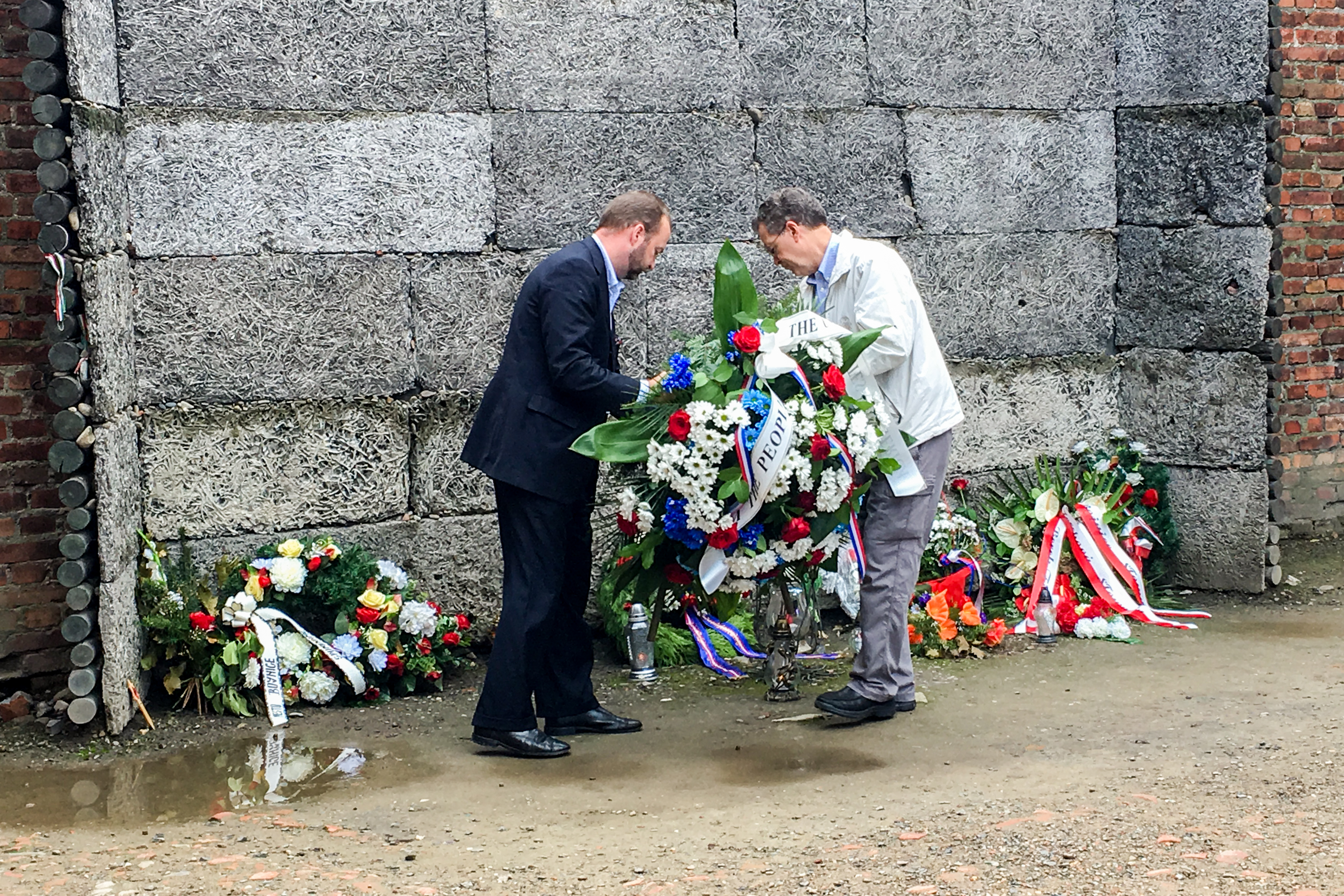By Rachel Bauman,
Policy Advisor
During the annual OSCE Human Dimension Implementation Meeting (HDIM) in Warsaw, I joined 21 other members of the U.S. delegation on my first visit to the Auschwitz-Birkenau Memorial Museum, the site of the former concentration and death camp in Nazi-occupied Poland.
The mass murder of Jews, Poles, Romani people, Soviet political prisoners, and other groups by the Nazi state is almost too monstrous for comprehension, especially from a distance. Fewer and fewer Holocaust survivors remain, and though many of their memories have been preserved, soon there will be no witnesses to speak to the horrors of the past.
What remains of Auschwitz-Birkenau, perhaps the most notorious death camp, is a testament to the millions of people slaughtered by the Nazi regime. Auschwitz I, though significantly smaller than Birkenau, is largely intact, and houses powerful exhibitions giving a deeply personal glimpse into a tragedy that often seems too large to grasp.
For me, the faceless masses of black-and-white history book photos were brought into sharp relief through collections of objects found after Soviet forces liberated Auschwitz on January 27, 1945. Enormous piles of eyeglasses, human hair shaved from the bodies of women dragged from the gas chambers, and children’s shoes were on display as a reminder of the simple trappings of humanity denied to the victims.
We laid a wreath at the Wall of Death, an execution site, and finished the tour with a silent walkthrough of a gas chamber, illuminated by the holes in the ceiling from which Zyklon-B pellets rained down on the trapped prisoners.

At Birkenau, we walked along the original train tracks where wagonloads of people were selected to either die in the gas chambers or labor in terrible conditions in which disease, starvation, and exposure meant that the average prisoner perished mere months after arrival. The remains of the killing factory, hastily destroyed upon the approach of the Soviets, are a haunting illustration of the scale of Nazi atrocities.
The final death toll of Auschwitz is estimated at 1.3 million, with Jews accounting for about 90 percent of the murdered. One in six Jews killed during the Holocaust were killed at Auschwitz.
The evils of anti-Semitism, racism, and persecution of minority groups still exist today. At the Birkenau memorial to the victims, Ambassador Brownback reminded us that the United States must continue to defend human rights around the world.

Helsinki Commission Chief of Staff Kyle Parker (left) and Ambassador at Large for International Religious Freedom Sam Brownback (right) lay a wreath at Auschwitz at the Death Wall where those who attempted to escape were shot.
As we prepared to depart, the clouds lifted over Birkenau, revealing a sunny sky, in stark contrast with the heavy grief of the morning. Each of us processed the visit differently, but all experienced a renewed sense of the importance of our mission upon returning to the HDIM.








